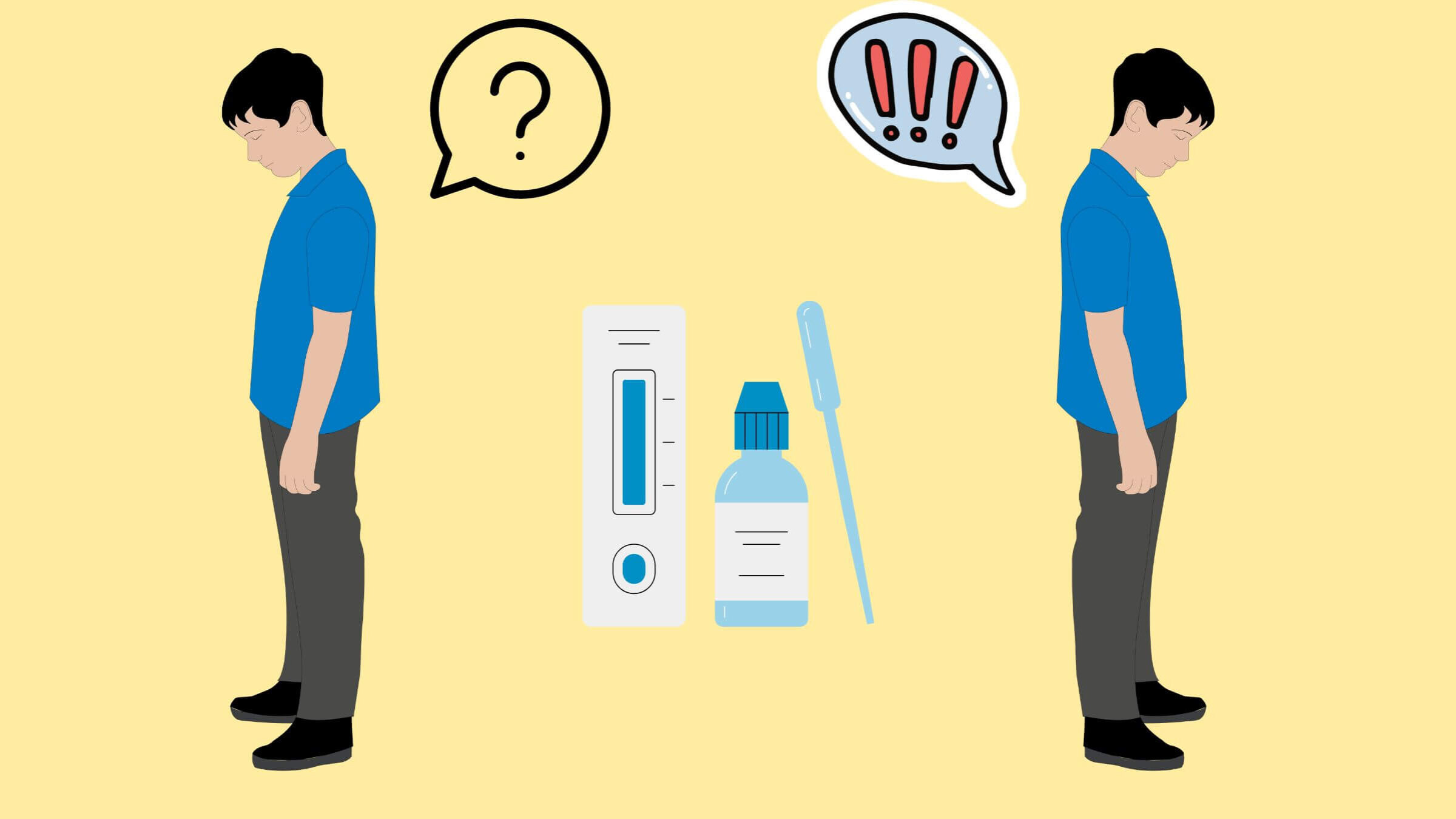Bintel BriefMy friends won’t take a COVID-19 test before seeing me. Should I drop them?
Bintel says: Your hurt feelings are valid, but you need to hear their side of the story

Is a friendship strained by COVID salvageable? Image by Talya Zax
The Forward has been solving reader dilemmas since 1906 in A Bintel Brief, Yiddish for a bundle of letters. Send us your quandaries about Jewish life, love, family, friends or work via email, Twitter or this form.
Dear Bintel:
Longtime friends live near my daughter and she invited them to meet with us at her home while we were visiting. She asked the friends days before the visit to take a rapid COVID-19 test prior to entering her home. They declined and indicated they would not come.
I am not sure how to handle this, since I see it as a sign of disrespect. If I had a cold and told them not to come for fear of getting them sick, I assume they would not come, or at least appreciate my concern. Do I speak with them, or just let the friendship go?
Sincerely,
Virus-Averse
Dear Virus-Averse,
After three years of living with this pandemic, finding out that people you feel close to have a different approach to managing COVID-19 risk can still be destabilizing.
You have every right to be hurt. Your friends handled this situation with an apparent lack of care for you. That’s never pleasant, and your reaction is valid.
But: You’re missing a crucial step between “my longtime friends denied what I perceive as a perfectly reasonable request” and “do I let the friendship go?” — which is, as you already know, speaking with them.
It’s important to remember that people make decisions based on all kinds of information, as well as completely illogical emotional stimuli. You don’t know why they refused to take the rapid test. Perhaps they were taken aback by the request. Perhaps they made (possibly unfair) assumptions about what the request suggested, and decided the visit itself might then be uncomfortable. (After all, who among us has never had a friend ask for something we saw as burdensome, and made an impulsive decision to just opt out?) Perhaps, even though there have been some free tests made available, the cost or hassle of getting a test felt like too much.
And it’s important to remember that the pandemic has left us all a little off our game socially. Many of us went months, if not years, without regular social interactions, and now find even simple visits to old friends more difficult to navigate.
Isolation makes it easy to zero in on tiny behaviors and wildly overanalyze them. The politicization of issues like vaccination, masking and testing has made it so that articulating a personal preference can feel alarmingly like making a major moral statement.
It is so, so easy, under these circumstances, to feel that you would simply rather not see someone than explain, say, why you do or don’t want to eat outside. It is so, so easy to drop a friendship rather than worry that the conversation might devolve into a political battle with the fruits of years of personal intimacy as ammo.
It’s so, so easy to want to just let things go. But you shouldn’t.
Judaism is full of teachings about how to apologize, as well as how to ask for and accept forgiveness. All of them come down to one central point: Human relationships are complicated, and it takes bravery, heart, respect and humility to maintain them. Human relationships are also essential. Bringing those qualities to bear is what helps us all to live meaningful lives within our communities.
Your friends have hurt you, and once you let them know that, they should apologize. That does not mean they bear the entire burden of maintaining what sounds like a mutually significant friendship. Neither of you benefits from a silent standoff, and you both have a lot to lose: a rich shared history, a previously strong emotional connection, a sense of some closeness in this divided world.
Show them bravery, heart, respect and humility, and ask them — kindly, and with compassion — why they backed out. Be honest — but not accusatory — about how their response to your daughter’s request left you feeling. Listen fully to what they say.
Maybe this ends the friendship, and maybe it doesn’t. Regardless, by doing your part to maintain those essential, fragile human ties, you’ll walk away feeling that something has been completed. It’s better to do the work and have it fail, than not to try.
Sincerely,
Bintel
A message from our CEO & publisher Rachel Fishman Feddersen
I hope you appreciated this article. Before you go, I’d like to ask you to please support the Forward’s award-winning, nonprofit journalism during this critical time.
We’ve set a goal to raise $260,000 by December 31. That’s an ambitious goal, but one that will give us the resources we need to invest in the high quality news, opinion, analysis and cultural coverage that isn’t available anywhere else.
If you feel inspired to make an impact, now is the time to give something back. Join us as a member at your most generous level.
— Rachel Fishman Feddersen, Publisher and CEO